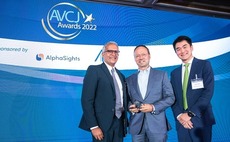
Portfolio: CVC, Headland and The Executive Centre
The Executive Centre has seen four different financial owners as its serviced office business has grown. CVC Capital Partners is the latest custodian tasked with taking the company to the next level
The calendar on Headland Capital Partners' investment in The Executive Centre (TEC) is approaching the five-year mark, but the private equity firm is not yet hankering for an exit. The process that led to CVC Capital Partners taking a majority stake in the serviced office operator earlier this year was not the standard dual-track IPO and trade sale affair; several PE firms and trade buyers approached Headland and expressed their interest in the asset.
CVC made approaches to both TEC's CEO and Headland, and then came up with a deal structure that satisfied all parties. The transaction - said to value TEC at $220 million including debt - took about four months to close. It is the first investment out of CVC's fourth pan-Asian fund, which closed at $3.5 billion in May.
"CVC cleverly came up with a solution. Firstly, it allows us to realize a significant gain on the investment. Secondly, it incentivizes management to continue to drive the business to grow," says Paul Kang, senior partner at Headland. "As a private equity fund, we have to realize liquidity over time but it was also very important for Headland that the business ended up in good hands, enabling the management to feel comfortable to continue developing the company."
Rare find
CVC is TEC's fourth institutional financial owner. Headland - then known as HSBC Private Equity Asia - acquired a majority stake from New York-based hedge fund Marathon Asset Management in December 2009, which in turn had bought the business from GEMS in 2007.
TEC dates back even further, to 1994 when New Yorker Paul Salnikow was deployed to Hong Kong by his then employer, a Saudi-backed US investment group, in search of new opportunities. He needed a base and looked for a serviced office - a familiar concept in the West - and found there weren't any. Recognizing an underserved niche in the real estate market, Salnikow founded his own company, TEC, and positioned it as a premium service provider.
"Sometimes the best product is the product you need for yourself," says Salnikow.
Focusing on the top end of the market - which meant snapping up prime locations in Hong Kong - required a large amount of capital if the business was to grow fast enough to meet demand for serviced offices. With this in mind, Salnikow initially sought out global institutional investors, but subsequently decided that Asian-based players would be more useful.
"Over time, I learnt that private equity investors must be Asia-based. Why is that important? Because they need to understand the market and look at the market from the same perspective as we do," he explains. "We had an investor based in New York [the hedge fund, Marathon] but when they went through the global financial crisis their view of the world was filled with fears and worries. In Asia, the financial crisis actually quickly turned into an opportunity in 2010-2011."
Demand for serviced offices was on the rise as more multinational corporations were looking to expand in Asia, but still wary in the wake of the crisis, they were not prepared to sink large amounts of capital into real estate.
If a company was only dipping a toe into Asian markets with a few people on the ground, it didn't want to buy space that might ultimately go unused. Renting a serviced office allowed the company to focus on its core business, while minimizing operational costs and not worrying about admin work.
Salnikow chose Headland as its second Asian private equity investor. The PE firm leveraged its relationships Citi, DBS and HSBC to obtain loans for TEC so the company could build upon its 28 centers in 14 countries. Headland also helped TEC on infrastructure development, which included setting up an effective customer relationship management system and strengthening and incentivizing management.
"We helped them focus on ensuring that every new center we opened generated a meaningful return. For example, we tried to make sure that each new center reached profitability as quickly as possible, as well as maximizing profit potential. The rationale being that, the faster we reached profitability, the quicker TEC could open more centers and build scale," says Kang.
Before Headland invested, it was used to take TEC around nine months to break even after opening up a new center. This has now shortened to four months. Profit margins have also increased from 20-25% to at least 35%.
"The management team is passionate. It's not like we have to persuade them to do this. We just had to provide the guidance and they executed on the agreed strategy," adds Kang.
Over the course of four years, the PE firm supported TEC as it expanded to more than 60 centers across 20 locations. Annual revenue increased from $50 million in 2009 to in excess of $100 million, while profits tripled in size. The company attracted major corporations such as tech giants Apple, Google, and Facebook, and banks including HSBC, Deutsche Bank and Morgan Stanley.
Despite this rapid growth, TEC is not yet thought ready for a public listing. "The timing probably isn't right for TEC to go public right now. We're very happy with the company and we want to stay invested. Today it's still $100 million in revenue. It's profitable, but getting a listing is probably more meaningful when the business is larger," Kang explains.
Fragmentation factor
Part of the expansion opportunity lies in consolidating what remains a highly fragmented serviced office market globally. While Regus, the dominant brand, has a market share of only 20%, no other provider boasts more than 2%. Asia is considered as the fastest growing region in the world, but it currently accounts for just 12% of global supply.
The penetration of premium office services - TEC's area of focus - is even smaller in Asia. Service offices are responsible for 1% of Grade A office occupancy in developed , with only about 1% in developed Asian markets such as Japan and Hong Kong, and 0.2% in emerging markets like India and Malaysia. In London and New York, the share is around 10%.
"Frankly, we could go to London or New York tomorrow. The reason we're not yet is not because of lower client demand; it's because we should make sure that management capabilities are strong enough to sustain growth. We should be powerful in our domestic market in Asia before venturing into America and Europe," says Salnikow.
TEC aims to generate $120 million in revenue by the end of this year, largely driven by existing centers that generate a steady 30% year-on-year growth in EBITDA. The company operates 30 centers in China, which alone account for about 30% of total revenue, the largest contribution of any region. Indian, meanwhile, has seen the fastest growth, expanding from one office center in 2009 to a current tally of seven.
TEC's ultimate aim is to go public within five years. As the company builds up its capabilities, Salnikow says it still needs a private equity partner to structure the business and help improve operations. "CVC will take us to top-tier level," Salnikow adds. "Each group has contributed to different stages of our growth. Perhaps Headland's ownership was our teenager years, and CVC is likely to be in our young adult years."
As to what TEC can aim for in partnership with its new majority owner, he looks no further than Luxemburg-based luggage manufacturer Samsonite. CVC helped restructure Samsonite in 2007 following a downturn in business due to the global financial crisis, before listing it in Hong Kong five years later.
"Some private equity groups only do trade sales or they cut costs and then re-sell the portfolio companies. CVC has a good record of working with management. CVC won't stick in around forever and they will move on to seek for liquidity. So we have agreed a business plan over the next four to five years, with a targeted value and planned exit methodology," says Salnikow.
Vote of confidence
TEC appealed to CVC because of its niche at the premium end of the Asian serviced office market, its high-quality management team, and the strong underlying industry dynamics. Headland's willingness to retain a minority stake also encouraged the incoming PE investor.
"Going forward, they have retained a minority stake in TEC, which really speaks to the quality of the business and the growth potential in the sector," says James Redmayne, a director with CVC's pan-Asian team.
CVC and TEC have together drawn up a business plan that includes a number of initiatives. Firstly, TEC wants to enlarge its Asia footprint from the current 66 locations to 100 over the next five years, including first forays into Malaysia and Thailand. As a result, the enterprise value of the business is expected to triple in size to more than $1 billion.
Secondly, service quality will improve. TEC is looking to introduce a new form of client management system called Global Account Management. At present, the company addresses customer needs on a local basis. A Hong Kong-based center will only provide services to a company within Hong Kong; there is no interaction with centers in other markets. Under the new system, TEC will not only deal with the likes of Apple in Hong Kong but work with companies to understand their office requirements globally and provide a more unified service.
It's a simple idea but it requires investment in systems and training people," Salnikow says.
Thirdly, TEC is working on adding new revenue lines to the business through the provision of additional value-added services for corporate customers, such as company formation, legal advice and business travel arrangements.
What will not change is the importance of securing prime locations for serviced office centers, and CVC is expected to help with this too.
"CVC has an expansive global network and we will tap into this so that TEC can continue its disciplined roll-out of new centers. For example, a number of the investors in CVC's funds also have real estate arms and so we will make them aware of the TEC offering and how they can add value to existing and new commercial office developments across Asia," says Redmayne.
The company's premium focus is also popular among landlords as it effectively serves as an incubator for high-quality clients. When customers reach a scale at which it makes sense to own their own premises, they depart a TEC serviced office - the average rental period is about 30 months - and tend to move onto another floor in the same building. Convenience is everything.
"In 4-5 years' time we believe TEC will be in a position to be a very successful public company, listed either in Hong Kong or Singapore," Redmayne adds. "Or, given the strength of the business and the attractions of the serviced office model, there could be interest from trade players and real estate developers."
Latest News
Asian GPs slow implementation of ESG policies - survey
Asia-based private equity firms are assigning more dedicated resources to environment, social, and governance (ESG) programmes, but policy changes have slowed in the past 12 months, in part due to concerns raised internally and by LPs, according to a...
Singapore fintech start-up LXA gets $10m seed round
New Enterprise Associates (NEA) has led a USD 10m seed round for Singapore’s LXA, a financial technology start-up launched by a former Asia senior executive at The Blackstone Group.
India's InCred announces $60m round, claims unicorn status
Indian non-bank lender InCred Financial Services said it has received INR 5bn (USD 60m) at a valuation of at least USD 1bn from unnamed investors including “a global private equity fund.”
Insight leads $50m round for Australia's Roller
Insight Partners has led a USD 50m round for Australia’s Roller, a venue management software provider specializing in family fun parks.








